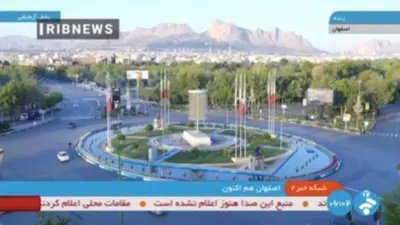We've updated our Privacy and Cookies Policy
We've made some important changes to our Privacy and Cookies Policy and we want you to know what this means for you and your data.
Government urged to make a decision on HS2 route
- By Caroline Davies
- Transport correspondent, BBC News
Image source, Siemens/PA
Supporters and opponents of the paused Birmingham-to-Leeds section of the HS2 high-speed rail project are calling on the government for clarity.
HS2 has suspended work on the so-called eastern leg of the £106bn project.
Businesses and local politicians are concerned because ministers have not confirmed that this stretch of the line will go ahead as planned.
Campaigners against the route also want an answer, saying the uncertainty is causing them stress.
The National Infrastructure Commission has proposed terminating the line in Nottinghamshire as one of a series of options due to be considered by the government.
Transport Secretary Grant Shapps has said the line will go ahead, but further work is needed on how to integrate it with plans for Northern Powerhouse Rail.
'Levelling up'
Advocates of the route have argued that it is a crucial part of "levelling up" - the government's policy of giving communities that feel they have been left behind a chance to catch up.
"It looks like levelling up could end up being a downgrade to what we were promised,' says Henri Murison, director of the Northern Powerhouse Partnership.
"It is impossible to level up without delivering both HS2 and Northern Powerhouse Rail in full.
Image source, Getty Images
"Cancelling the eastern leg would cut off huge parts of the North and Midlands from jobs, investment and economic prosperity - and turn away the private investment waiting for more certainty."
Many expected the announcement far earlier. The cost of the project has grown to nearly £100bn.
Living with uncertainty
Work has started on phase one of HS2 from London to Birmingham. There are nearly 300 sites in the south of England and giant boring machines have started to dig the route's underground tunnels.
HS2 has said it will be one of the most environmentally responsible infrastructure projects ever delivered in the UK and promised that seven million new trees and shrubs will be planted.
But environmental protests continue, including against the destruction of ancient woodland.
The images of the works worry those on the proposed Eastern Leg route.
"I could cry," says Sandra Haith, an anti-HS2 campaigner who lives in the village of Bramley, near Rotherham.
"Can you imagine how those people down south are feeling to see people chopping the trees down? It breaks my heart to think about it, I can't believe the destruction this is causing."
The HS2 route will run next to Ms Haith's village and she fears years of disruption. "We get all the pain and no gain. We get trains shooting through, but we can't get on it here," she says.
The government has said that its Integrated Rail Plan will soon outline how major rail projects, including HS2 phase 2b and other projects such as Northern Powerhouse Rail, will work together.
"The sooner the better," says Ms Haith. "Hopefully it won't go ahead, but we need to know.
"The stress that people are living under is just unbelievable."
Pandemic impact
Supporters of HS2 have said that people might be working from home now, but the train line is about creating capacity for decades to come.
But others have said that the pandemic has damaged the case for HS2. The Institute of Economic Affairs (IEA), a free-market think tank, has long argued against HS2.
'There was never a business case, but whatever justification there may have been has certainly been weakened by the pandemic," says a spokeswoman for the IEA.
"Everyone working from home and the Zoom apocalypse has probably been exaggerated, but it nonetheless goes to show the pitfalls of ministers trying to crystal ball-gaze and forecast the country's and business communities' future needs."
She added: "But these projects should be on a far smaller scale and there should really be a focus on incremental improvements to existing infrastructure in northern towns and cities, because I believe that will deliver far larger economic gains."
Top Stories
Features & Analysis
Most read
Content is not available








